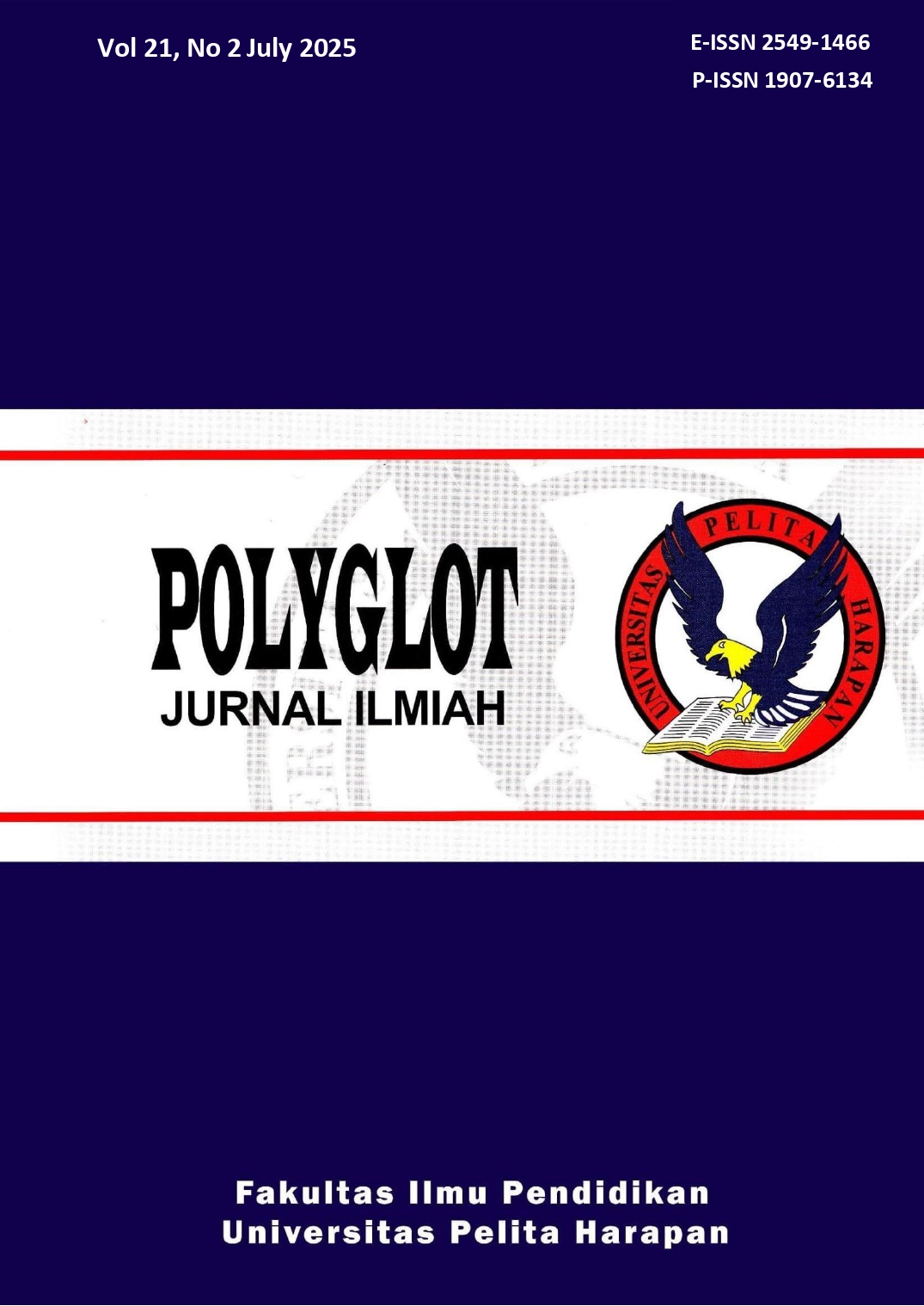PENGEMBANGAN HANDBOOK STRATEGI PEMBELAJARAN INOVATIF UNTUK MENINGKATKAN KOMPETENSI GURU HOMESCHOOLING DI KOTA BANDUNG [THE DEVELOPMENT OF AN INNOVATIVE LEARNING STRATEGY HANDBOOK TO IMPROVE THE COMPETENCE OF HOMESCHOOLING TEACHERS IN BANDUNG CITY]
DOI:
https://doi.org/10.19166/pji.v21i2.10027Schlagworte:
homeschooling, kompetensi guru, pengembangan profesional, strategi pembelajaran inovatif, penelitian dan pengembangan, handbook, learning strategy, teacher competency, professional development, innovative learning strategy, reaserach and developmentAbstract
Homeschooling is increasingly popular as an alternative educational model, but it faces challenges, including the need for competent teachers who can cater to diverse student needs. This study aimed to develop and evaluate a competency development program for homeschooling teachers in Bandung City, packaged as a handbook titled "Strategi Pembelajaran Inovatif" (Innovative Learning Strategies). The research utilized a Research and Development (R&D) method with the 4D model (Define, Design, Develop, Disseminate). The Define stage involved a Focus Group Discussion (FGD) with homeschooling leaders and interviews with teachers, revealing a need for enhanced teacher competency, particularly in innovative learning strategies. The Design stage focused on creating the handbook structure and content, covering "Mengenal Homeschooling" (Understanding Homeschooling) and "Strategi Pembelajaran Inovatif," which includes personalized learning, project-based learning, inquiry-based learning, and technology integration. The Develop stage included expert validation (content, design, technology) which rated the handbook favorably (average scores 2.8, 2.9, and 2.9 out of 3, respectively, leading to minor revisions) and a trial with homeschooling teachers. The trial showed an increase in participants' understanding, with average pre-test scores of 61.17 and post-test scores of 70.75. Feedback on the training program and handbook was generally "good" (average rating 83.77). The Disseminate stage involved distributing the handbook to four other homeschooling institutions in Bandung, which provided "sufficient" feedback (average rating 75/100) and positive impressions. The study concludes that the developed handbook is a viable and relevant tool for enhancing the competencies of homeschooling teachers in Bandung.
Abstrak Bahasa Indonesia
Homeschooling semakin diminati sebagai model pendidikan alternatif, namun menghadapi berbagai tantangan, termasuk kebutuhan akan guru yang kompeten dan mampu melayani kebutuhan siswa yang beragam. Penelitian ini bertujuan untuk mengembangkan dan mengevaluasi program pengembangan kompetensi bagi guru homeschooling di Kota Bandung, yang dikemas dalam bentuk sebuah handbook berjudul "Strategi Pembelajaran Inovatif". Penelitian ini menggunakan metode Penelitian dan Pengembangan (R&D) dengan model 4D (Define, Design, Develop, Disseminate). Tahap Define melibatkan Focus Group Discussion (FGD) dengan pimpinan homeschooling dan wawancara dengan guru, yang mengungkap kebutuhan peningkatan kompetensi guru, khususnya dalam strategi pembelajaran inovatif. Tahap Design berfokus pada perancangan struktur dan konten handbook, yang mencakup materi "Mengenal Homeschooling" dan "Strategi Pembelajaran Inovatif" (pembelajaran personalisasi, project-based learning, inquiry-based learning, dan integrasi teknologi). Tahap Develop meliputi validasi ahli (konten, desain, teknologi) yang menilai handbook secara positif (rata-rata skor 2,8, 2,9, dan 2,9 dari 3, yang mengarah pada revisi minor) dan uji coba kepada guru homeschooling. Hasil uji coba menunjukkan peningkatan pemahaman peserta, dengan skor rata-rata pre-test 61,17 dan post-test 70,75. Umpan balik terhadap program pelatihan dan handbook umumnya "baik" (rata-rata penilaian 83,77). Tahap Disseminate melibatkan pendistribusian handbook ke empat institusi homeschooling lain di Kota Bandung, yang memberikan umpan balik "cukup" (rata-rata penilaian 75/100) dan kesan positif. Penelitian ini menyimpulkan bahwa handbook yang dikembangkan merupakan alat yang layak dan relevan untuk meningkatkan kompetensi guru homeschooling di Kota Bandung.
Literaturhinweise
Afiat, Z. (2019). HOMESCHOOLING; PENDIDIKAN ALTERNATIF DI INDONESIA. Dalam Jurnal Visipena (Vol. 10, Nomor 1).
Mesra, R., Salem, V. E. T., Goretti, M., Polii, M., Daniel, Y., Santie, A., Made, N., Wisudariani, R., Sarwandi, R. P., Sari, R., Yulianti, A., Nasar, Y., Yenita, D., Putu, N., & Santiari, L. (2023). Research & Development Dalam Pendidikan. PT. MIFANDI MANDIRI DIGITAL.
Nasution, S. M., & Choli, I. (2022). HOMESCHOOLING AND ISLAMIC EDUCATION IN INDONESIA. Al-Risalah, 13(2), 248–264. https://doi.org/10.34005/alrisalah.v13i2.1878
Purwaningsih, N., & Fauziah, P. Y. (2020). Homeschooling: An Alternative Education Based on Potential of Children. Proceedings of the International Conference on Educational Research and Innovation (ICERI 2019). https://doi.org/10.2991/assehr.k.200204.035
Sukmadinata, N. S. (2011). Metode Penelitian Pendidikan (Vol. 7). PT Remaja Rosdakarya.
Syaadah, R., Ary, M. H. A. A., Silitonga, N., & Rangkuty, S. F. (2023). PENDIDIKAN FORMAL, PENDIDIKAN NON FORMAL DAN PENDIDIKAN INFORMAL. PEMA (JURNAL PENDIDIKAN DAN PENGABDIAN KEPADA MASYARAKAT), 2(2), 125–131. https://doi.org/10.56832/pema.v2i2.298
Thiagarajan, S., Semmel, D. S., & Semmel, M. I. (1974). Instructional Development for Training Teacher of Exceptional Children. Leadership Training Institute/Special Education.
Wardati, Z. (2019). Peran Guru dalam Pembentukan Karakter Sosial Anak pada Habib Alby Home Schooling. DAYAH: Journal of Islamic Education, 2(2), 261. https://doi.org/10.22373/jie.v2i2.4185
Downloads
Veröffentlicht
Ausgabe
Rubrik
Lizenz
Copyright (c) 2025 Edsel Jeremy

Dieses Werk steht unter der Lizenz Creative Commons Namensnennung - Weitergabe unter gleichen Bedingungen 4.0 International.
Authors who publish with this journal agree to the following terms:
1) Authors retain copyright and grant the journal right of first publication with the work simultaneously licensed under a Creative Commons Attribution License (CC-BY-SA 4.0) that allows others to share the work with an acknowledgement of the work's authorship and initial publication in this journal.
2) Authors are able to enter into separate, additional contractual arrangements for the non-exclusive distribution of the journal's published version of the work (e.g., post it to an institutional repository or publish it in a book), with an acknowledgement of its initial publication in this journal.
3) Authors are permitted and encouraged to post their work online (e.g., in institutional repositories or on their website). The final published PDF should be used and bibliographic details that credit the publication in this journal should be included.





